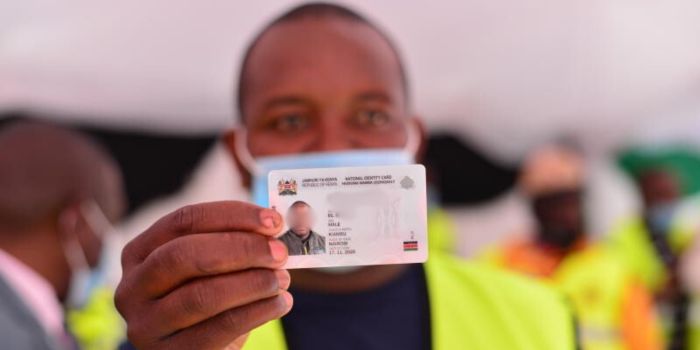High Court halts rollout of Maisha Namba cards

The petitioner argued the implementation of the exercise contravenes various sections of the constitution including provisions for public participation, transparency and access to information as well as freedoms.
The High Court has suspended further implementation of the Unique Personal Identifier (Maisha Namba), third-generation National Identity card (Maisha Card), Maisha Digital ID and Maisha Database.
Justice Lawrence Mugambi on Thursday suspended the exercise following an application by activist Haretha Bulle through the Haki na Sheria initiative challenging the implementation of the same on constitutional grounds.
More To Read
- Government launches national ID registration for 18-year-old secondary school students
- Petition challenges legality of Maisha Namba, cites marginalisation and privacy risks
- National Registration Bureau clears 600,000 ID backlog, digitises 16 million records
- State begins issuance of Maisha cards to KCSE candidates
- Government issues notice on IDs, birth certificates and driving licenses
- All 2024 KCSE candidates to receive Maisha Cards before finishing exams
Haretha argued that the Maisha ecosystem threatens the potential irreversible risk of breach of mass personal data and permanent exclusion of select groups of the Kenyan populations.
The ecosystem includes a Maisha card being issued to children at birth, the other to the first applicants of National Identity card (ID) and the last to adults who hold the second generation ID cards and apply for replacement upon loss.
Haretha said the government has already confirmed the current problems relating to the issuance of second-generation IDs and the consequent exclusion of certain groups of persons in Kenya owing to secondary vetting and access to registration centres in April this year.
This was in the new guidelines for registration for issuance of IDs in border, urban cosmopolitan and settlement counties.
"These groups consist of mainly children from minorities and marginalised communities who have trouble procuring citizenship documents such as birth certificates owing to challenges in accessing registration centres for years of secondary vetting of their parents and grandparents in procuring IDs leading to general disenfranchisement. This problem is similarly faced by double registered persons," Haretha said.
Unconstitutional
The petitioner said the implementation of the exercise contravenes various sections of the constitution including provisions for public participation, transparency and access to information as well as freedoms.
Haretha had told the court to consider that the effects of the implementation may not be referred to if the exercise is found unconstitutional.
"The court must preserve the substratum of the petition, for if the mass rollout goes on if eventually, the court finds there was a violation, that may not be easily redressable," Mugambi stated.
"The court is satisfied by the latest disclosure, an order staying any further or continued implementation pending the hearing of this application ought to be issued."
Haretha says the government through the Ministry of Interior is actively collecting, processing and storing data despite all the security concerns raised in the petitions filed earlier.
The petitioner said members of the public are at risk of prejudice and their privacy rights are threatened by the disclosure of certain forms of personal information in the absence of proposals on how the data will be protected.
"Maisha ecosystem lacks sufficient safeguards for the processing of personal data in contravention of Article 31 of the constitution on the right to privacy," the petition states.
Other Topics To Read
Mugambi directed the applicants to serve the government by July 26 upon which the Ministry of Interior, and Attorney General among others are required to respond in seven days.
The court will give further directions on September 17 this year.
Top Stories Today

















































